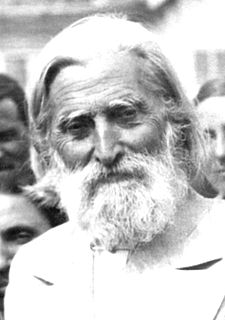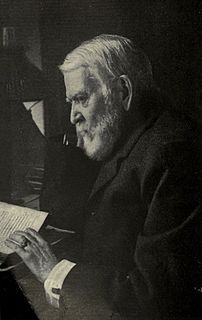A Quote by Austin O'Malley
Death is an antidote for this life, and it makes another more stable form of life which is insoluble in everything.
Related Quotes
the novel is inherently a political instrument, regardless of its subject. It invites you - more than invites you, induces you - to live inside another person's skin. It creates empathy. And that's the antidote to bigotry. The novel doesn't just tell you about another life, which is what a newspaper would do. It makes you live another life, inhabit another perspective. And that's very important.
What makes climbing great for me, strangely enough, is this life-and-death aspect. It sounds trite to say, I know, but climbing isn't just another game. It isn't just another sport. It's life itself. Which is what makes it so compelling and also what makes it so impossible to justify when things go bad.
Birth leads to death, death precedes birth. So if you want to see life as it really is, it is rounded on both the sides by death. Death is the beginning and death is again the end, and life is just the illusion in between. You feel alive between two deaths; the passage joining one death to another you call life. Buddha says this is not life. This life is dukkha - misery. This life is death.
If I had my life over again I should form the habit of nightly composing myself to thoughts of death. I would practise, as it were, the remembrance of death. There is no other practice which so intensifies life. Death, when it approaches, ought not to take one by surprise. It should be part of the full expectancy of life. Without an ever-present sense of death life is insipid.
Laughter. Yes, laughter is the Zen attitude towards death and towards life too, because life and death are not separate. Whatsoever is your attitude towards life will be your attitude towards death, because death comes as the ultimate flowering of life. Life exists for death. Life exists through death. Without death there will be no life at all. Death is not the end but the culmination, the crescendo. Death is not the enemy it is the friend. It makes life possible.
Death is the door from the superficial life, the so-called life, the trivial. There is a door. If you pass through the door you reach another life - deeper, eternal, without death, deathless. So from so-called life, which is really nothing but dying, one has to pass through the door of death; only then does one achieve a life that is really existential and active - without death in it.
Through death you find yourself, because you no longer identify with form. You realize you are not the form with which you had identified neither the physical nor the psychological form of "me". That form goes. It dissolves and who you are beyond form emerges through the opening where that form was. One could almost say that every form of life obscures God.
In the face of death, especially violent death, things don't make sense anymore. So death is the dissolution of either physical form or psychological form. And when a form dissolves, always something shines through that had been obscured by the form. This is the formless One Life, the formless One Consciousness.
In spite of death, he felt the need of life and love. He felt that love saved him from despair, and that this love, under the menace of despair, had become still stronger and purer. The one mystery of death, still unsolved, had scarcely passed before his eyes, when another mystery had arisen, as insoluble, urging him to love and to life.
An argument often given for why Earth couldn't host another form of life is that once the life we know became established, it would have eliminated any competition through natural selection. But if another form of life were confined to its own niche, there would be little direct competition with regular life.
We are left with nothing but death, the irreducible fact of our own mortality. Death after a long illness we can accept with resignation. Even accidental death we can ascribe to fate. But for a man to die of no apparent cause, for a man to die simply because he is a man, brings us so close to the invisible boundary between life and death that we no longer know which side we are on. Life becomes death, and it is as if this death has owned this life all along. Death without warning. Which is to say: life stops. And it can stop at any moment.
The greatest mystery in life is not life itself, but death. Death is the culmination of life, the ultimate blossoming of life. In death the whole life is summed up, in death you arrive. Life is a pilgrimage towards death. From the very beginning, death is coming. From the moment of birth, death has started coming towards you, you have started moving towards death.

































